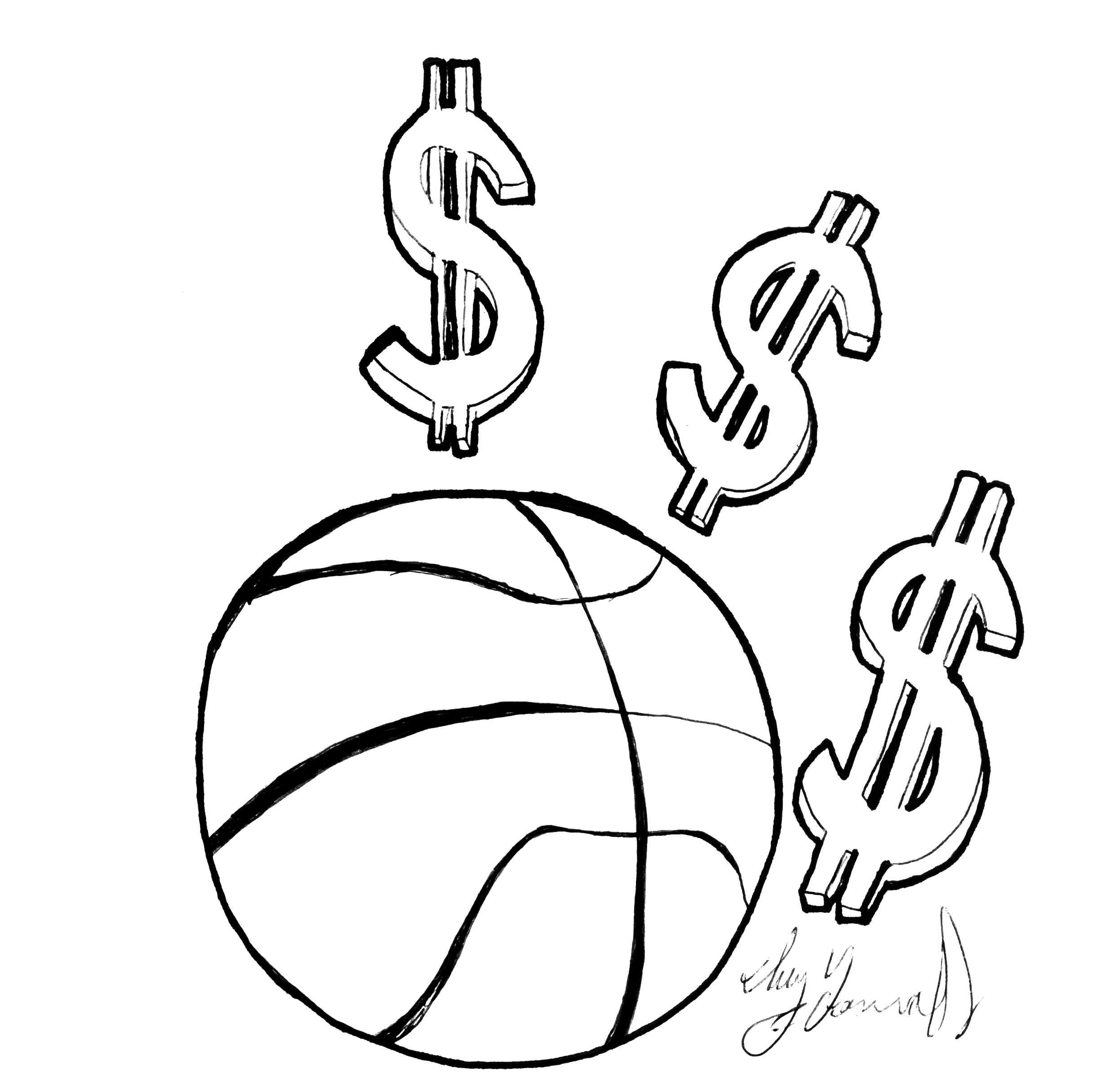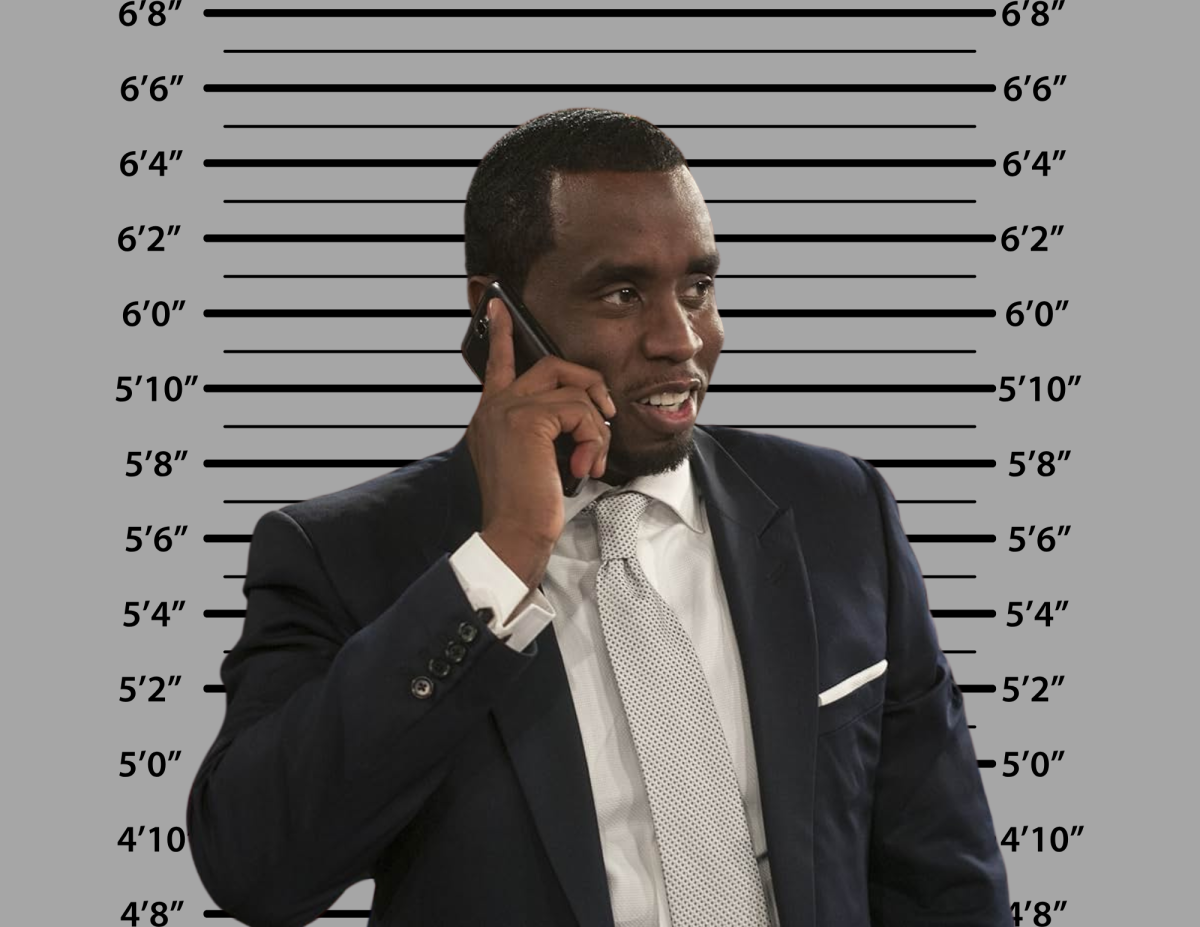Written by Daniel Felix
How the NCAA is taking advantage of players by not paying them

Division 1 colleges see no problem having sports be their “golden goose,” but when talk of paying players comes up the golden egg turns rotten.
The National Collegiate Athletic Association is making huge returns from student athletes and in return provides them with a free college education. But is the education equal to the money student athletes are making the university?
The money college sports generates gets pumped back into the school and circulated into sports related affairs such as coaches, equipment and buildings, however some part of the money should go to the people putting in the most work: the student athletes.
Mark Emmert, chief executive officer of the NCAA, has said several times that students should not get paid because their payment is an education.
In the New York Post article, “How colleges exploit athletes,” Linda Chavez stated that even with the full ride scholarships that students receive they still should be paid at least something and that the reason why schools like the University of Texas made more than $139 million in 2014 was because of student athletes.
Our very own military soldiers are provided with everything they could need at boot camp while they receive military training yet they still get paid some amount of money to send home and they don’t even generate money for the branch they’re in training for. So why aren’t student athletes who are making all the money in collegiate athletics entitled to a paycheck?
Coach Dabo Swinney from Clemson University, said during an interview, “As far as paying players (and) professionalizing college sports that’s where you lose me. I’ll go do something else because uh there’s enough entitlement in this world as it is.”
However, ESPN reports that Swinney, starting in 2014, is making $3.15 million a year.
Swinney never talked about his inflated compensation, all he does is bash the idea of student athletes receiving any compensation.
The NFL requires players to be three years removed from high school in order to suit up, while the NBA requires its rookies to be at least 19 years old and a year out of high school. These athletes are forced to attend college unless they opt to take the drastic measure of playing professionally overseas.
So what kind of education in fact are they getting?
To understand this, we first must take a look at the daily schedule of a college athlete. According to business insider on average athletes put 40+ hours a week into sports related activities and this leaves little to no time for academic focus.
Ironic how on the NCAA website under athlete benefits it states that students have the best intern opportunities in their schools. Funny because student athletes don’t have time to even stop and breathe.
Then what kind of classes do they get?
Former student athletes Rashanda McCants and Devon Ramsay have sued the University of North Carolina and the NCAA because they were enrolled into “paper classes,” classes that guaranteed an A or B for the student. The instructor would tell them what type of paper they needed and then the instructor would simply look at their paper to see if it had everything to qualify as an essay and then give them a grade.
Education in the Webster Dictionary is defined as: the process of receiving or giving systematic instruction, especially at a school or university. How is that the education they are receiving for this one class does not give them any instruction at all? Simple the division 1 colleges wants the name of student athletes but behind closed doors all they want is the athlete part and can care less about the education they give.
A lot of the athletes who receive scholarships may be set in that aspect but they still need some form of income to help out their families.
Even common core classes such as English and Math need some study time but in their situation what time do they have to study? Student athletes are told come here, there and everywhere and oh yeah keep at least keep a 3.0 GPA.
Athletes have constant stress over losing their scholarship from not performing well enough or not meeting their academic requirements.
In any situation where you have two things that require your time equally one of them will suffer.
In a CNBC’s Article, “Think athletic scholars are a ‘holy grail’? Think again,” Kelley Hollands tells us that for some who receive a scholarship they might give it up and transfer to another school and all due to the demands that are placed on them and on top of that being a student athlete takes away any chance of being able to have internships into their future career.
The thought that a sport that one loves could brings more hardship and hasell then benefit to someone truly sickens me.
College in my eyes is supposed to push you to be more and to improve your future.
However, the slave like institutional use of Division 1 athletes rips students away from these opportunities.
The NCAA has built a huge money making machine and they need to give credit (payment) where credit is do. What they need to pay I do not know but they need to pay something.
This is not going to be a simple transition but it is going to be beneficial in everyone’s favor.
As Art Williams says, “I never said it was gonna be easy I said it was gonna be worth it.”





